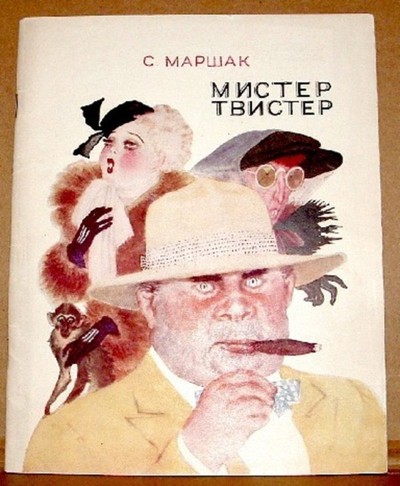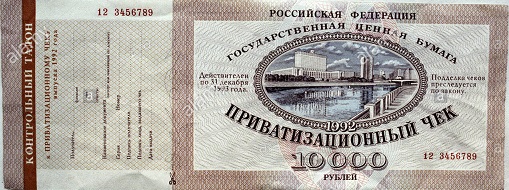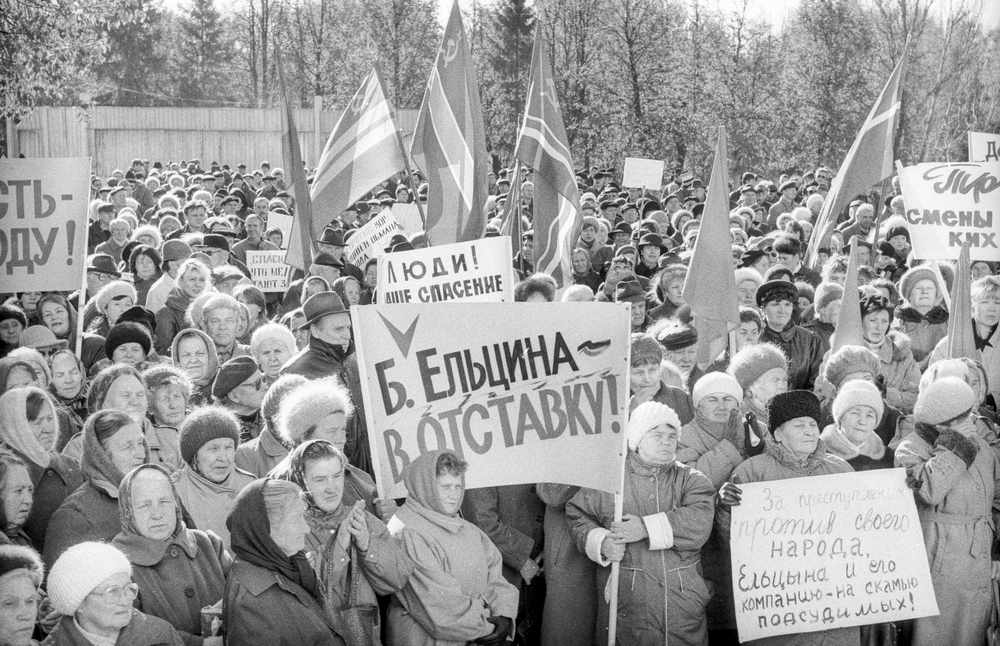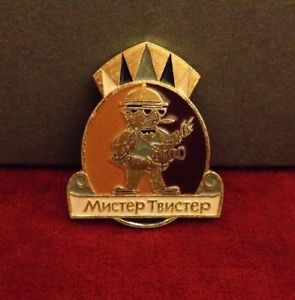Review of Bill Browder, Red Notice: A true story of high finance, murder, and one man’s fight for justice, Simon & Schuster, 2015.
 ‘Red notice’ is the catch phrase for an interpol arrest warrant. There is sort-of one out on Browder, accused by the Russian government of tax fraud, though only Spain briefly acted on it in May 2018 before releasing him, saying it was a political case. Browder, our speculator-hero, who made and spirited out of Russia hundreds of millions, compares his last flight from Moscow to London in November 2005 as “like those who had narrowly escaped Phnom Penh or Saigon before their countries fell into chaos and ruin.”
‘Red notice’ is the catch phrase for an interpol arrest warrant. There is sort-of one out on Browder, accused by the Russian government of tax fraud, though only Spain briefly acted on it in May 2018 before releasing him, saying it was a political case. Browder, our speculator-hero, who made and spirited out of Russia hundreds of millions, compares his last flight from Moscow to London in November 2005 as “like those who had narrowly escaped Phnom Penh or Saigon before their countries fell into chaos and ruin.”
Here as elsewhere his memoirs full of incongruencies, though occasionally hitting a bull’s eye. Phnom Penh was indeed descending into chaos in 1973, but Saigon’s legendary ‘last helicopter’ moment was not a descent into chaos, but a liberation from the chaos of American invasion, that killed millions and devastated Vietnam over two decades.
And Moscow in 2005 was finally beginning to look like a normal country after 15 years of ‘chaos and ruin’, thanks, not to the western briefcase crowd, but to a large extent to Browder’s nemesis, the now legendary Putin. Putin is the star in history books; self-styled ‘human rights’ activists like Browder, mere footnotes.
Browder is the grandson of the CPUSA leader in the 1930s--40s, Earl Browder,
a simple union organizer from Wichita, who went to Moscow in 1926, was enamored twice-over, marrying Raisa Berkman, and returning to lead the US on the path to communism. Bill’s father Felix was the eldest of Earl’s three sons, born in Moscow on the tenth anniversary of the revolution
.
McCarthyism made life difficult for the sons of Browder sr, though his hopes as an American communist were detente, leading him to disband the Communist Party during WWII. It seems naivete runs in the family, as US leaders were not the slightest bit interested in making peace with communism, just as post-Soviet Russia was not really interested in making peace with capitalism and imperialism, which Bill learned to his dismay a half century later.
Fortunately, neither Stalin nor Putin were/ are naive, however nasty their domestic politics may be. Neither sold out to capitalism, though in the 1920s and 1990s, Russia came within a whisker of that fate.
Shock therapy as addiction
Bill’s epiphany came when he remembered his grandfather, and used his fame to argue his way into Stanford as a kind of brilliant loose cannon, and in job interviews, to suggest he wanted to go to Russia not as communist stooge, but as a capitalist hero, a kind of family bookend.
“My grandfather had been the biggest communist in America, and i decided that I wanted to become the biggest capitalist in eastern Europe.” He wanted “to reconcile my family’s communist background with my own capitalist ambitions”. I.e, dump social rights, embrace individual rights -- especially the right to make money without limits.
He proved to be very good at this, with his shiny MBA from Stanford, and chutzpah off the charts, railroading his way into private meetings to promote himself, ambushing bigwigs in hallways, undaunted by rejection. He wangled his way into the World Economic Forum in Davos in 1996 without an invitation and crashed a private lunch for Zyuganov; he rushed up to Medvedev at a formal luncheon and ask him why he couldn’t get his coveted visa …
Bill, the ‘real existing’* Mr Twister, is brilliant and knows his capitalism. He started in Poland as a privatization consultant for the bus manufacturer Autosan in 1990, discovering that “the Polish government was selling the company for one-half of the previous year’s earnings. This meant that if you invested in this company, and it stayed in business for six months, you would effectively make your money back.” He immediately wagered all his ‘capital’ ($2,000) on stocks in Autsan, soon finding his first ‘ten bagger’ (multiplying your investment ten times).
This was the blueprint for the ‘shock therapy’ across the Soviet bloc in the 1990s: sell off the crown jewels, all the jewels, to whomever at discount prices. Mostly, privatization was supposed to be via government-issued certificates, but foreigners’ dollars were welcome, and the Ivans and Natashas just sold this funny money to sharks for, say, a bottle of vodka or the monetary equivalent, and the sharks gathered them up and then used them at privatization auctions to take control of firms, with or without foreign dollars.
Insiders from the old bureaucracy were often able to take control and then resell to anyone (preferably foreigners who could set up and pay directly into their foreign bank accounts) for a killing (they thought), on which foreigners could then make the real ‘killing’. Imagine vultures hovering over a dying wildebeest, descending majestically after the messy kill, to coolly pick at the remains.
Like a safe-cracker, he had discovered the road to massive profits by a simple sleight-of-hand. He relishes “the sensation of finding a ‘ten bagger’, the financial equivalent of smoking crack cocaine. Once you’ve done it, you want to repeat it over and over and over as many times as you can.” An apt analogy. Bill, like all who fall in love with capitalism, became addicted. He didn’t know when to stop.
Real existing capitalism
The Polish -- all the ex-Soviet governments were also enamored with capitalism, thinking in Adam Smithian abstract terms about harnessing greed to create wealth and prosperity for all. ‘Let foreigners come and solve our problems,’ i.e., bring western technology and access to western markets. Ha, ha.
‘Real existing capitalism’* was very different. It was more like Genghis Khan’s invasion, with rape and pillage the chief characteristics. Strip assets, cut out existing markets (east Europe and Russia), and import largely unnecessary ‘goods’ in fancy wrapping, undermining the balance of payments, the currency, etc. Perfect for slick MBA grads like Browder, who throughout his book makes none of these connections. All Browder sees is dollars signs. Like his math prodigy father, he lives in a world of figures, abstractions.
This led him down a wild, rocky road, with more than one casualty. After having done business in Russia for five years, he set up his own investment fund, Hermitage Capital Management, which soon became the largest foreign portfolio investor in Russia.
A sensible capitalist, he gave up his US citizenship in 1998 to avoid paying taxes (citizenship, like money and ‘human rights’, knows no boundaries). After a decade of milking the dying Soviet cow, Browder was refused entry to Russia in 2005 as a threat to national security, after he exposed what he claims was a $240m tax fraud by senior government officials.
He also is a big fan of Israeli machismo, constantly turning to ex-Mossad agents like Ariel (Lion of God), “widely considered to be one of the best security advisers in Moscow,” to “sort out” a problem. His life is littered with Mossaders, whom he clearly admires, like the heroes of comic books, acting to defend ‘human rights’ in the face of evil.
But then he is solidly Jewish, from his Soviet granny, through to his first wife (she dumped him for his obsession with Russia). His first job as investment fund manager was with the notorious Robert Maxwell, Israel’s “superspy”, who hated and was hated by all but a few ‘chosen people’. Browder soon ingratiated himself through his cold blooded profit making in the wreckage of the socialist world (Maxwell was Czech, so was especially eager to rape Russia). He comes across as a nice version of Maxwell, his mentor and idol (minus, so far, the sordid finale).
By the fall of 1991, even before the Soviet Union was buried, he had “reviewed more than 300 deals and traveled to nearly every country of the former Soviet bloc.” Until Maxwell’s massive, bloated body was found drifting near his yacht in the Atlantic. But the mystery and scandal didn’t really matter, as by then Maxwell Communications Corporation was already in receivership. Working for Maxwell was hardly a plus on his CV, but by then Browder was ready to start his own fund, and he chose Russia as his target, because no one else dared. I.,e., it was ripe for the taking, if you dared.
He started with the Murmansk trawler fleet, which was a Russian version of his Polish bus company: undervalued, ripe for picking. The sky looked like the limit at that point. Yelstin had been conned into issuing 150m privatization certificates/ vouchers to citizens, which were exchangeable for 30% of all Russian company shares, originally trading at $20.
Browder did the math: the entire Russian economy was worth $10b (1/6 of Walmart). He went right to the top, the Salomon Brothers Investment Bank. They snapped him up and found a relative in Moscow who owned a small Russian bank (wouldn’t you know it!) and could be trusted in now dog-eat-dog Russia. Soon he had bought $25m vouchers for the Salomons at bizarre, makeshift auctions,*^ and then proceeded to buy shares of companies at even more bizarre “voucher auctions”. Browder brilliantly plays these events like a teenage Jewish prodigy at Carnegie Hall. His ‘ten baggers’ came in the hundreds, millions, making the Salomons the owner “of the most undervalued shares that had ever been offered anywhere in history”.
could be trusted in now dog-eat-dog Russia. Soon he had bought $25m vouchers for the Salomons at bizarre, makeshift auctions,*^ and then proceeded to buy shares of companies at even more bizarre “voucher auctions”. Browder brilliantly plays these events like a teenage Jewish prodigy at Carnegie Hall. His ‘ten baggers’ came in the hundreds, millions, making the Salomons the owner “of the most undervalued shares that had ever been offered anywhere in history”.
Beny Steinmetz, a charismatic Israeli billionaire, heir to his family’s rough-cut-diamond business, Salomon’s biggest private client, offered him $25m to start his own investment firm. Leopold Safra, a prominent Lebanese Jewish financial magnate, invested -- and almost lost, thanks to Browder -- $100m. To show his faith in Browder, he sent to Moscow, unsolicited, a dozen heavily armed bodyguards, headed by yet another ‘Ariel’.
‘Jews of the word unite...’
The Jewish theme runs through this incredible story, from Browder to Maxwell, the Salomon brothers (with the relative-with-bank), diamond merchant Steinmetz, the ex-Mossad Ariels, the Kosher Nostra,** the oligarchs, even storyteller Samuil Marshak, the parodist of these capitalists out to swallow the plucky Soviet Union. Right down to the recapitulation of Stalinist era Jews-fighting-Jews (many NKD in the 1920s--30s were Jewish, as were many of those arrested; Browder, the Kosher Nostra, and the oligarchs fought among themselves over the spoils and influence at the top).
Even the silence in the West about all this outrageous Jewish activity. The importance of Russian Jews in Russian and Soviet history was never dealt with until Solzhenitsyn’s Two Hundred Years Together (2002), but it is the only one of this Nobel laureate's books that still has not been published in English since it is, of course, ‘antisemitic’. The topic is verboten.
 Browder’s tale comes straight from the Soviet children’s cartoon world, and recaps Ginsberg’s cautionary tale in The Fatal Embrace: Jews and the State (1993), stating that for their own purposes, rulers often were happy to accommodate the Jews in exchange for their services, resulting in “the rise to great power by Jewish elites, but creating conditions for their subsequent fall”.
Browder’s tale comes straight from the Soviet children’s cartoon world, and recaps Ginsberg’s cautionary tale in The Fatal Embrace: Jews and the State (1993), stating that for their own purposes, rulers often were happy to accommodate the Jews in exchange for their services, resulting in “the rise to great power by Jewish elites, but creating conditions for their subsequent fall”.
Browder epitomizes the contradiction underlying Jewish history, the paradoxical cultural role of vizier to the monarch as part of their home nation’s elite, guiding public policy, and at the same time, as shapers of culture (storytellers) and advocates of the oppressed and rebels. Of course, western media highlights only the positive side, the ‘advocates of the oppressed and rebels’, the philanthropists, whitewashing the ruthless motivation of greed underlying the Jewish embrace of soulless capitalism that Browder’s saga encapsulates.
Kudos to Browder. After all, we are all Jews now. So far, Browder is on a role, his crowning achievement his ‘human rights’ shaping of culture, the 2012 Magnitsky Act, denying US visas to 18 of the worst of the baddies.***
His Magnitsky moment was bitter medicine, but whatever the truth about Magnitsky’s death, good for Russia. Monarch Putin at the beginning of his reign made good use of Browder’s early revelations to begin to put some order into the post-collapse chaos, corralling various oligarchs, taking control away from them in the economy and the media, securing his power, which, like all monarchs, he uses both for the nation but also for himself and his lackeys. Browder was even nicknamed “Putin’s guy”. But he was exiled, like Jewish financiers of past monarchs,**** and forever must fear for his life.
Monarchs have big egos and their reach also has no boundaries. Browder should take heed of Ginsberg. His two wives and three children will not want to be orphaned, like the much nicer (but equally foolish) Paul Tatum.^ He could have cashed in his chips when he was exiled in 2005. But when Magnitsky died in prison, he took up the torch of ‘freedom’ and tried to bring down Putin himself through his ceaseless haranguing.
Neocon heaven or hell?
This looks noble, but was/ is it? It’s hard to be both good and bad, and hard to evaluate someone who is both very good and very bad. Memoirs like Browder’s are self-serving. He sees himself (and Magnitsky) as a brave fighter for truth. Yes, Russians compile their own ‘Magnitsky lists’, and prison guards/ secret service types are a bit more careful about torturing their prisoners.
But the very fact that he would cold bloodedly participate in the rape and pillage of the socialist bloc, concerned only with formal legality, considering Russian resources and industry fair game for the global elite, shows how divorced from reality he and his ilk are. Individual rights for the 0.01%, yes. But social rights for the 99.99%? Individual responsibility? Ha, ha.
Browder and his investment banking crowd actually produce nothing. His hundreds of millions are what Marx called “fictitious capital”. “The stock market is “the market for fictitious capital, for circulation of property rights, a claim on future surplus. Profit made purely from trading in a variety of financial claims existing only on paper. An extreme form of fetishism of commodities, made by using borrowed capital to engage in speculative trade, not backed by any tangible asset.” Parasitism pure and simple. If the Browders suddenly dropped dead, would the world be any the poorer?
After the collapse of the Soviet Union, this western religion, with its MBA high priests, was supposed to lift Russia out of its morass. But it merely sucked its blood, and the parasite came close to killing its host (it is still trying hard, with capital outflow ‘bleeding’ mother Russia at present. It is as easy as pie to collapse an economy.). Imperialism makes excellent use of the Browders, but at the same time, over time, the aura of this fictitious capital can vanish and then, watch out!
Other than slapping a few thugs’ wrists, what good has Browder done? He justifies himself as “making lots of money, but also helping to make Russia a better place.” Did his post-2005 international campaign to vilify Putin and Russia really do that?
His (evil) nemesis Putin has done far more good, even as he throws crumbs (ok, large crumbs) to his followers. Sure, the Russian masses have been duped by the promises of western-imposed shock therapy, live in desperate poverty, are victims of the fallout of Gorbachev’s mistakes.
But their adulation of Putin shows that they can see the very good side of Putin, his resurrection of Russia, giving a sense of dignity to the common people and hope for a future not under a foreign yoke, rediscovering some of the good about the Soviet Union and why so many Russians mourn its demise. He is not blind to the reality of fictitious capital, but rather concerned that real capital is used in the nation’s interests, to protect it and rebuild the country.
This is not at all how the neocons saw the future. Browder’s Magnitsky Act came at a good time for them, undermining Obama’s ‘reset’ of the US-Russia button, undermining the ‘enemy’. Obama was forced to sign it (though secretary of state hawk Hillary was an enthusiastic cheerleader).
Soviet redux
There are eerie parallels in Browder’s tale with the 1930s Soviet Union, and the Cold War. The paranoia, show trials, the unreliable  legal system,^^ the fear of arrest or being killed for opposing the powers that be. At the same time, the practice of compiling ‘Magnitsky lists’ There is even a freaky allusion to Gogol’s Inspector General, or better, Dead Souls, with the trial and sentencing to nine years for the deceased Magnitsky and absent Browder in 2013, the first such trial of a dead person since 897AD.^^^
legal system,^^ the fear of arrest or being killed for opposing the powers that be. At the same time, the practice of compiling ‘Magnitsky lists’ There is even a freaky allusion to Gogol’s Inspector General, or better, Dead Souls, with the trial and sentencing to nine years for the deceased Magnitsky and absent Browder in 2013, the first such trial of a dead person since 897AD.^^^
Even the ban on Krainer’s Magnitsky expose (see below) smacks of Stalinist purging of truth tellers. And Saigon … Yes, Browder’s Saigon moment, as he took the legendary helicopter from the US embassy, but as the ugly American, escaping the wrath of a nation liberated from yet another Mr. Twister.
Economic Hit Man
The slick financiers of Wall/Fleet Streets, using the tricks of international finance to fleece one and all, are devastatingly portrayed by John Perkins in Confessions of an Economic Hit Man (2004).
Perkins wrote his book as a mea culpa, but there is no thought in Browder’s mind of the culture he’s just invaded, of how his actions impact delicate political matters, of any sense of responsibility to Russia, as opposed to just the narrow interests of his western clients (himself first of all, and possibly the CIA (see below)) to make as much money as possible ASAP and get the hell out. Hey! Why should foreigners be able to come in and effectively steal Russia’s wealth anyway?
No wonder Putin is so incensed. Mr. Twisters just don’t get it. Putin grudgingly approved of Browder’s exposing of corruption, but ‘Putin’s boy’ went too far. The same happened around the Panama Papers, which exposed financial activity in Putin’s circle. Putin criticized the use of them to suggest Russian official corruption, as propaganda to undermine Russia, but he did admit that the Papers were legitimate. You can be sure he stored any info away for future use.
Putin also taunts western leaders concerning the Russia sanctions, saying they are good for Russia, making it more self-reliant. He might have added: and making Russian swindlers keep their ill-gotten gains in the motherland, serving it, and making the purchase of villas in Nice or Cyprus more difficult. He is no fool, and presumably takes it for granted that a ruler makes the rules. He has already ‘kick out the Jews,’ so to speak, like King Edward I in 1290.
Whatever the convoluted truth of Browder’s story is, and there are lots of holes, well documented in an interview with Alex Krainer , author of Grand Deception: the Truth About Bill Browder, the Magnitsky Act, and Anti-Russia Sanctions (banned by Amazon^^^^):
*Magnitsky met with the Russian mafia to transfer the ownership.
*The mafiosi in question then died mysteriously, along with several other mafiosi.
*Magnitsky's mother believes the prison was negligent, but did not intentionally kill her son.
*Browder is using the Magnitsky story to avoid an Interpol warrant for tax fraud in Russia.
He just happened to be the key witness that got 'anti-Russia sanctions' rolling in 2012 following the passing of the Magnitsky Act (i.e., before the coup in Ukraine and Russia 'annexed' Crimea). Conspiracy, anyone? Just who are you working for, Mr. Twister?
Every official Western report concerning this case relies solely on Bill Browder and his sources and it is a crime to doubt him. Putin finally added his two kopecks in his press conference with Donald Trump in June 2018, charging that hundreds of millions Browder's Hermitage Capital, defrauded from the Russian state, went to Hillary Clinton's campaign fund.
Where there’s so much convolution, intuition comes into play. Browder's memoirs are definitely worth reading, if only for the descriptions of the voucher auctions and his encounters with Maxwell, Zyuganov, Medvedev. I don't know about Hillary campaign chest, but there’s something creepy about Browder, not least of which is his schmoozing with Obama, Hillary, Soros etc., and now Trump.
I would not buy a used car from Bill Cli.. .oops, I mean Browder.
xxx
*Real existing socialism was the official euphemism for the socialist economies of the 1970s--80s.
*^The Moscow voucher exchange took place in a convention hall across from GUM, a series of concentric rings of picnic tables under an electronic trading board hanging from the ceiling.
**Piracy was transformed by capitalism into various mafia groupings in era of imperialism, the latest and most powerful being the Russian mafia, dominated by Jews and dubbed the Kosher Nostra, as distinct from the Jewish oligarchs.
***He wanted 60. Followed by a similar act in the European parliament, (not binding) with Estonia, Britain, Canada, Lithuania and Latvia putting the law in their books in 2017. In 2016, Congress enacted the Global Magnitsky Act which allows the US Government to sanction foreign government officials implicated in human rights abuses anywhere in the world.
****See Postmodern Imperialism, The Canada Israel Nexus.
^Tatum owned the Radisson Slavyanskaya Hotel, published an ad accusing his partner of blackmail in 1996 and, despite his bullet-proof vest, was shot dead near the hotel by an unknown assassin.
^^He describes the case of a Russian raider attack: corrupt police officers fabricating criminal cases, corrupt judges approving the seizure of assets, organized criminals hurting anyone who stood in the way, police raiding our offices, seizing documents, using a convicted killer to fraudulently reregister our companies, forged contracts taken to court, a lawyer you didn’t hire showing up to defend your companies, pleading guilt.
^^^Pope Formosus was convicted, had his fingers cut off, and his body thrown into the Tiber, for being unworthy of the pontificate. His body was retrieved by a monk and he was later rehabilitated.





